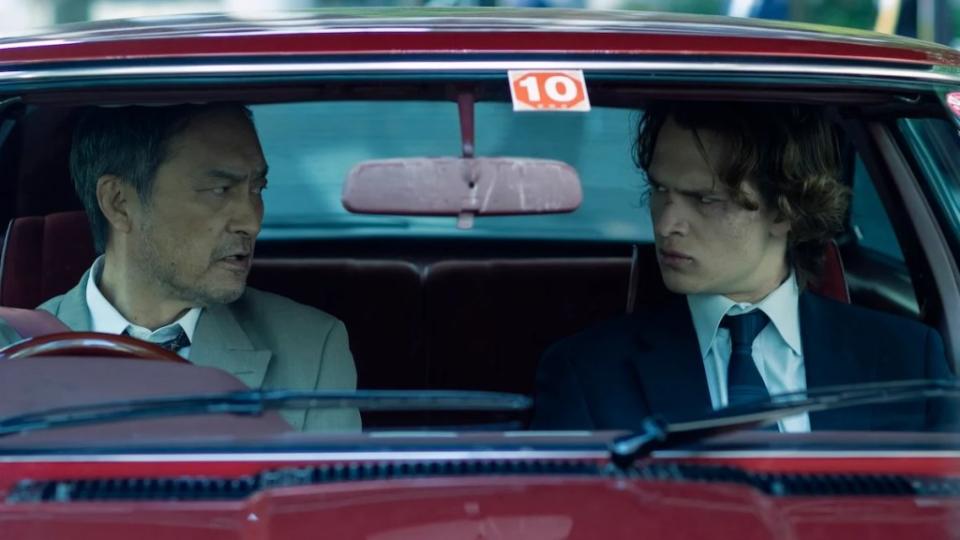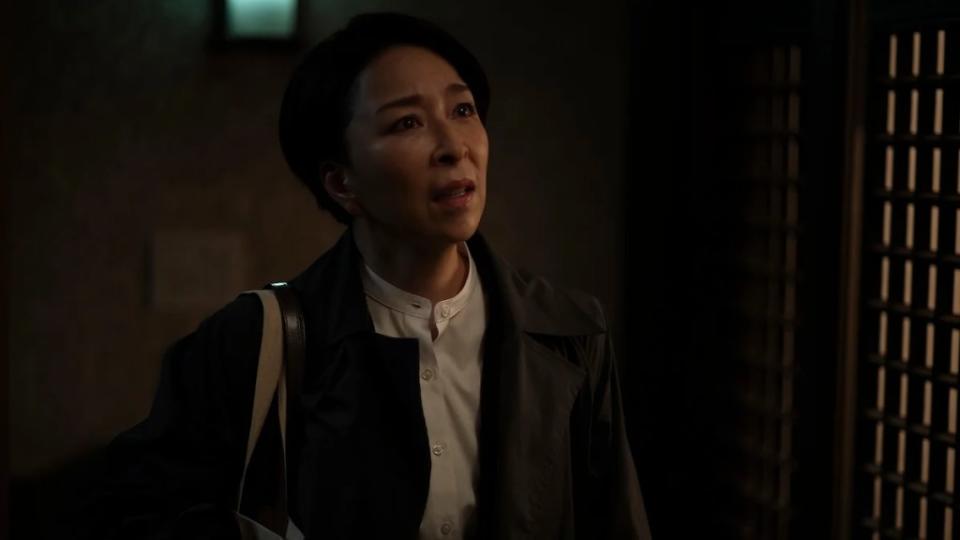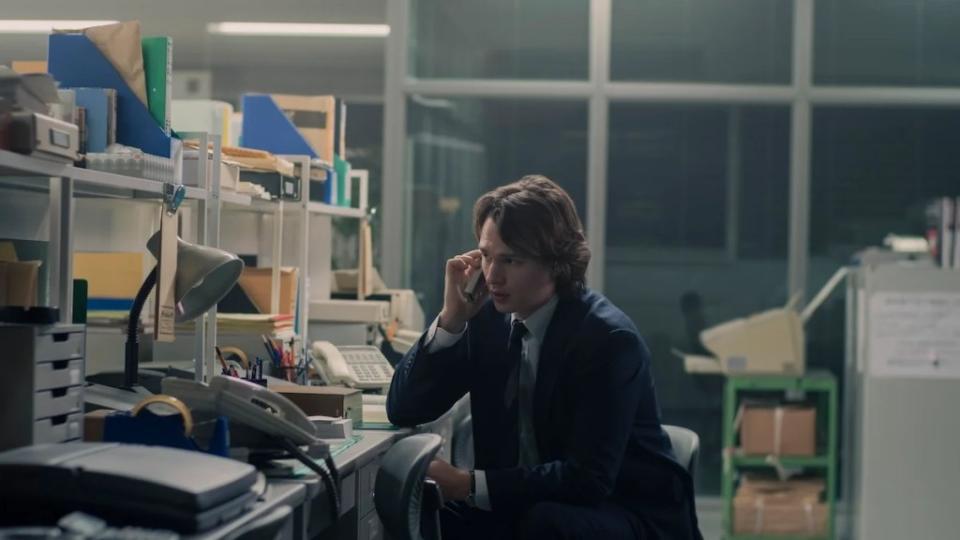‘Tokyo Vice’ Creators, Stars Lay Out How Season 2 Keeps Ramping Up Its Morally Complex Yakuza Showdown
“Tokyo Vice” Season 2 is underway on Max, continuing the story of real-life journalist Jake Adelstein and his investigations around organized crime in Japan in the late 1990s. Show creator J.T. Rogers and director/executive producer Alan Poul, as well as stars Ansel Elgort and Ken Watanabe, took TheWrap through where the show’s second season is going and what it’s exploring.
“The rough shape of both seasons was set for me at the beginning” of the series, Rogers said, “but as you make something, you learn what it is.”
After shooting and editing Season 1, Rogers found himself wanting two things heading into Season 2.
“I want[ed] more female voice with power, in a way that’s actually credible for 1999 Japan,” Rogers said. “So literally what position — how do we do that in [this] world. We’re obsessed with specificity and authenticity in making this show.”
That meant moving the pieces into place for Samantha (Rachel Keller) to run her own hostess club, using that power to help other women while also defending herself from those who want to seize that power.
Rogers’ next goal was to shuffle up the direction of some of the show’s characters to make their arcs less predictable.
“When you’re telling a longform story, you can never get comfortable, and the audience can’t get comfortable,” Rogers said. “So if we have really interesting characters with a power who are on a certain trajectory like Detective Katagiri played by Ken Watanabe, well, how are we going to take him and just shake him, just knock him off balance?”
That’s led to the creators pushing many characters into new roles, with power dynamics continuing to shift throughout the season. For Elgort’s Jake and Watanabe’s Detective Katagiri, that meant moving from Jake looking up to Katagiri at the end of Season 1 into forming more of a partnership in Season 2.
“In Season 1, it’s more like, Jake is just getting his footing in Japan,” Elgort said. “He’s almost being too American the way he does things. He doesn’t give Katagiri enough respect. He doesn’t have enough patience and he ends up kind of fumbling the play.”

Introducing more Japanese characters
Katagiri deals with some new dynamics in Season 2, including answering to the more aggressive Shoko Nagata (Miki Maya) from Japan’s National Police Agency. She’s determined in her pursuit of the Yakuza, as opposed to Katagiri’s previous goal of keeping a detente between the various players in the country’s criminal underworld. It’s a more subservient role than he’s previously had on the show.
“Nagata also has a past, which makes her fight against the Yakuza very personal,” Watanabe said. “Then she has a goal of eradicating them, which is very difficult. And while Katagiri feels this is hard to achieve, he cooperates with her, because it’s the only thing that he can do.”
The show spends more time with its Japanese characters in Season 2, giving them narrative power without everything being seen through protagonist Jake’s perspective. The show is a coproduction with Japanese broadcaster Wowow, and the influence of the Japanese side of the show is felt more strongly this time around.

Rogers described Poul as the “incredible bridge” between the show’s portrayals of American and Japanese culture.
“The joy of making a longform television show to ever expand the world, right?” Rogers said. “And if we’re set in Japan, then the world is going to become, in essence, more Japanese the further we go.”
Rogers sought to both go deeper into the show’s existing characters while also adding new ones.
Learning the language
Elgort used the advantage of the project being a long commitment to develop his Japanese as the series began filming — and over its unexpected breaks.
“It’s very lucky that this is a TV show and that we’ve had already eight hours of TV going into Season 2,” Elgort said. “It was also a blessing in disguise that we had the COVID break, because I was able to study during that time too.”
The show had just started to film in the early part of March 2020, before COVID-19 shut the series down for several months. That break let Elgort work on his language skills, allowing him both to improve in the later shooting of Season 1 and when coming back to film Season 2.

“To Ansel’s great credit, as his Japanese has gotten really, really good, it allows me to put him in places where it’s realistic that he would be able to go if the character spoke Japanese,” Rogers said.
Behind the scenes, there were pressures early on to use more English dialogue where possible. But things have changed over the course of its development from when Rogers first began working on the script and setting it up with Max.
“There were a lot of conversations where I have to say, ‘No, I’m not putting more English in. No, that character can’t speak English,’ ” Rogers said.
“Well then ‘Squid Game’ came,” Rogers added with delight, noting that his own son “watches foreign TV on his phone and doesn’t even think about it. And so that’s all gone away now — it’s just, make a good show.”
Showing the moral complexity of the Yakuza
Season 2 dives deeper into the show’s moral complexities, humanizing members of the Yakuza while not shying away from their crimes. Jake himself gets pushed into more complex choices of his own as he seeks to gain the trust of his subjects.
Watanabe shared how important it was for him that his character not see the Yakuza simply as enemies, adding that these characters have their own “backgrounds, sadness and darkness.”
“Whether it’s a movie, a play, a series, I’m only writing characters that are like people, that are three-dimensional,” Rogers said. “You have to at least admire, if not love, anyone you’re writing. Because then the actor has that to imbue, and the director has that to shoot, and the production designer has that to design around.”
Watanabe praised Rogers’ writing and character work, including the show’s complex storytelling. He added that he was excited to be part of knitting those elements together.
“Tokyo Vice” airs new episodes Thursdays on Max.
The post ‘Tokyo Vice’ Creators, Stars Lay Out How Season 2 Keeps Ramping Up Its Morally Complex Yakuza Showdown appeared first on TheWrap.

 Yahoo Sports
Yahoo Sports 